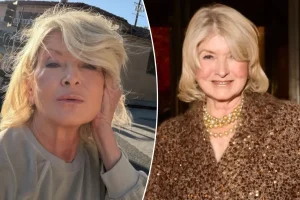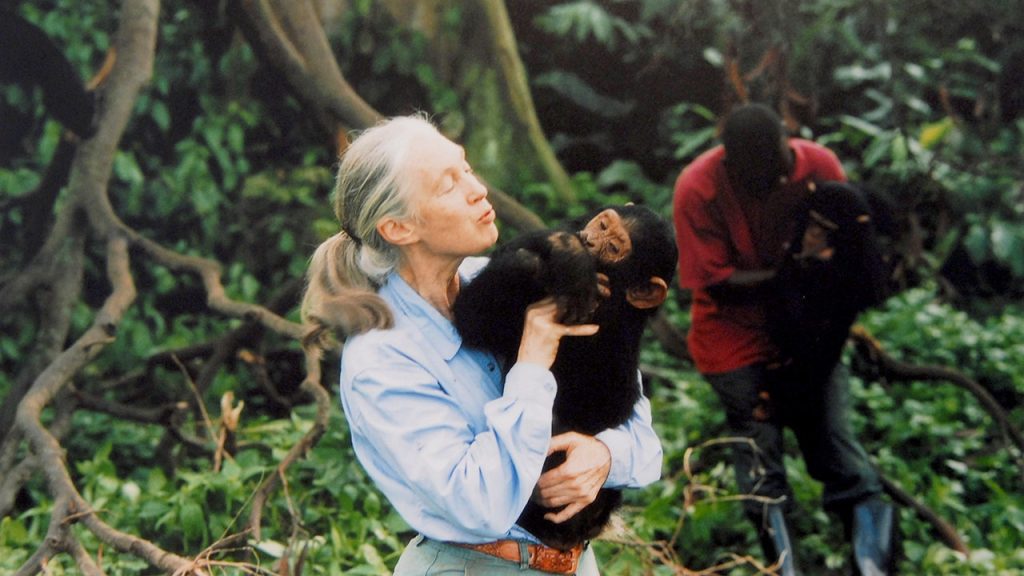Jane Goodall: A Life Dedicated to Understanding and Protecting Our World
Jane Goodall, the pioneering primatologist who transformed our understanding of chimpanzees and their relationship to humans, has passed away at the age of 91. The Jane Goodall Institute announced that she died of natural causes on Wednesday morning while in California as part of her speaking tour. Throughout her remarkable life, Goodall revolutionized scientific approaches through her immersive research methods and became one of the world’s most influential voices for conservation, leaving behind a profound legacy that spans scientific discovery, environmental activism, and humanitarian work.
Born with an innate curiosity about animals, Goodall’s journey to becoming a scientific pioneer was anything but conventional. Without formal scientific training initially, she followed her passion for primates to Tanzania’s Gombe Stream National Park in 1960, where she made her groundbreaking discovery that chimpanzees could make and use tools—a finding that challenged the prevailing definition of humans as “tool-makers” and forced a fundamental reconsideration of our relationship to other species. Her approach to research was revolutionary: rather than observing from a distance, she immersed herself in the chimpanzees’ habitat, giving names rather than numbers to her subjects, and recognizing them as individuals with distinct personalities, emotions, and social bonds. This methodology was initially criticized by the scientific establishment but eventually led to her receiving a PhD from Cambridge University in the mid-1960s—remarkably, without having previously earned a bachelor’s degree.
As her work gained recognition, Goodall expanded her focus from pure research to advocacy, founding the Jane Goodall Institute in 1977. The organization grew to become a leading conservation NGO, implementing community-centered conservation programs across Africa and beyond. Goodall understood that protecting chimpanzees required addressing the needs of local human communities, leading to holistic approaches that combined wildlife protection with sustainable development initiatives. Her institute pioneered programs that created economic alternatives to hunting and deforestation while empowering local communities to become stewards of their natural resources. This integrated approach to conservation has become a model for environmental protection efforts worldwide, demonstrating that the wellbeing of wildlife, ecosystems, and human communities are inextricably linked.
Recognizing the importance of engaging future generations, Goodall founded Roots & Shoots in 1991, a youth-led community action program that has since grown to include thousands of groups in over 100 countries. The program empowers young people to identify and address problems in their communities while developing compassion, environmental awareness, and leadership skills. Through this initiative, Goodall’s influence extended far beyond scientific circles, inspiring millions of young people to become agents of positive change. Her belief in the power of individual action was captured in her frequent reminder that “every individual matters, every individual has a role to play, every individual makes a difference.” This message resonated globally, transforming her from a scientist studying chimpanzees to an icon of environmental consciousness and humanitarian values.
In her later years, Goodall maintained a relentless travel schedule that would exhaust people half her age, typically spending more than 300 days per year on the road, giving lectures and inspiring audiences worldwide. She leveraged her global platform to speak about pressing issues like climate change, biodiversity loss, factory farming, and poverty. Her advocacy earned her numerous accolades, including being named a UN Messenger of Peace in 2002 and receiving the Presidential Medal of Freedom from President Biden in early 2025. Despite her advancing age, she continued to adapt her message for new challenges and audiences, embracing digital communication during the COVID-19 pandemic and speaking to the intersectionality of environmental, social, and economic justice. Throughout her public life, she maintained an unwavering optimism about humanity’s capacity to solve the problems we’ve created, often citing her “reasons for hope”: the resilience of nature, the power of young people, the human intellect, and the indomitable human spirit.
The news of Goodall’s passing triggered an outpouring of tributes from individuals and organizations worldwide, reflecting her extraordinary impact across multiple domains. From scientific institutions to conservation organizations, from world leaders to ordinary citizens whose lives she touched, the messages share a common theme: gratitude for a life dedicated to expanding human knowledge and protecting our shared planet. As the United Nations noted in their tribute, “The scientist, conservationist and UN Messenger of Peace worked tirelessly for our planet and all its inhabitants, leaving an extraordinary legacy for humanity and nature.” This legacy lives on not only in her scientific discoveries and the continuing work of her institute but in the countless individuals she inspired to believe in their own ability to make a difference. Jane Goodall showed us that the boundaries between humans and other animals are far more blurred than we once believed, and in doing so, expanded our circle of moral concern to include not just chimpanzees but the entire natural world upon which all life depends.















